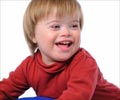Multiple genes, known and unknown ones, are thought to interact among themselves and with environmental factors to influence the diverse abilities involved in intelligence.

"This research is one of the first to use a molecular genetic approach to evaluate complex cognitive traits in a pediatric sample," said one of the study's two co-senior leaders, Hakon Hakonarson, M.D., Ph.D., director of the Center for Applied Genomics at The Children's Hospital of Philadelphia. "Uncovering the genetic architecture of these diverse cognitive abilities may offer new insights into cognitive development and may ultimately allow investigators to identify useful biomarkers for diagnosing and predicting risks of neuropsychiatric conditions."
The study appeared online July 15 in Molecular Psychiatry. Hakonarson's co-senior author is psychiatrist Raquel Gur, M.D., Ph.D., director of Neuropsychiatry in the Perelman School of Medicine at the University of Pennsylvania. "We are beginning to reap the benefits of the major investment we made in recruiting this highly informative youth cohort," said Gur. She added, "They were genotyped and underwent 'deep phenotyping' that included medical, neuropsychiatric, and neurocognitive evaluations and multi-modal neuroimaging in a large subsample. This cohort will continue to yield novel information on how genes and environment interact to produce a mature, healthy brain and will elucidate how aberrations in brain function lead to cognitive deficits and psychopathology."
The study team represents a collaboration among the CHOP and Penn investigators with colleagues at the Broad Institute, Harvard Medical School and Massachusetts General Hospital (MGH) who developed a powerful gene software tool called genomewide complex trait analysis (GCTA). The study's first author is Elise B. Robinson, Ph.D., of the MGH Analytic and Translational Genetics Unit, led by Mark Daly, Ph.D.
The researchers used GCTA to analyze a subset of 3,689 individuals aged 8 to 21, all of European ancestry, drawn from the Philadelphia Neurodevelopmental Cohort, a general-population sample of close to 10,000 individuals who received care within CHOP's pediatric network for a broad range of health needs. The researchers performed genotypes of all participants, administered a battery of neurocognitive tests and assessed participants in structured psychiatric interviews.
The GCTA analyzes common SNPs (single-nucleotide polymorphisms, changes of a single base in DNA) to estimate how much these common gene variants contribute to differences in cognitive abilities within the total sample. The study team grouped cognitive traits within five broad domains: executive function, memory, complex cognition, social cognition and reading ability.
Advertisement
There also were significant overlaps between trait domains. Reading ability, which was 43 percent attributable to common variants, was often inherited together with language reasoning abilities. "Intuitively, it makes sense that skills in reading and language reasoning are related," said Hakonarson, who added that those traits might be investigated together in future genetic and neurobiological studies.
Advertisement
Ultimately, added Hakonarson, if the current findings are replicated and extended, researchers may be able to generate a genetic profile reflecting a normal distribution of cognitive abilities. He said that detecting gene patterns that act as biomarkers for cognitive impairments may allow future researchers to better predict in early childhood the potential risk of developing later neuropsychiatric conditions, and may offer opportunities for early clinical interventions.
Source-Eurekalert










